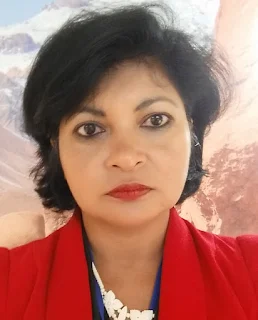Educators at his city school might have breathed a sigh of
relief at seeming exoneration from the incident in which a 12 year old in
school uniform was gunned down in ‘broad daylight’ on the edge of the capital
city a few weeks ago after it seemed that his grandmother had fabricated her
claim that he was on the streets that day after being turned away from school
for a breach of the school’s dress code.
It seemed to be wishful thinking of the grandmother of the
victim who was not-quite-a-child-not-yet-a-young-man that it was the oft-touted
over-onerous education system that was the cause of his being on the streets on
that ill-fated day as in her mind he loved school, his classes and the learning
opportunities it provided, if not as a path out of the trigger-loving company
that he might have fallen into.
And while fingers turned to pointing to the home and the
community, of the victim, and later the police and law enforcement (or lack
thereof), and further extended to the society and its tug-of-war politics, none
of these, nor the educators and the education system could be exonerated as a
factor in the echoes of gunshots and trigger-happy, gun-toting youths who seem
to be dominating the criminal landscape in increasing numbers, and not just
from the recent past.
If these systems and institutions cannot attract the young;
if the communities and families cannot emanate a different kind of aura;
reorient their view of themselves and their value and worth to our society;
their historical and cultural sense of themselves; if the education system
cannot deliver more substantively on the promise of the value and potential of
learning and schooling and deliver these to young minds in forms that are as
creative and exciting, and with the kinds of rewards as gun handling may be –
economically as well as in terms of social recognition and value then the future trends seem inevitable.
If the school system was offering and delivering education
in forms that could effectively counter the culture of the streets – perhaps
the young man would have been in school, working towards fulfilling his
grandmother’s vision of his potential. Much in the wrong, but very much in the
right too, the grandmother’s initial claim that it was the school’s stickler to
the rules that left her child on the streets, peppered as it was with a
long-held tinge of the philosophical truth behind our school system – that ‘the
purpose of education is to form, not to inform,’ as captured in the Naipaulian
anecdote and a host of literary and other representations.
In over half a century of our political Independence,
schools still wear their colonial garb; the creativity that spring from the
core and centre of our citizens are still relegated to the periphery. We claim,
for example, progress that cultural components as the steelband and creativity
of the Carnival arts have been pulled from the periphery and are now in the
school syllabus, but it is the very fact that they are being taught as subjects,
and not positioned and recognised as core drivers of social change that signal
our shortsightedness. That is to say, that the approach is still skewed. There
are education facilities elsewhere that are using Carnival and our creative
arts – literature, music, drama, design- to teach critical thinking from the
cradle in kindergartens – the kind of education that will cultivate discerning
youths with critical ability to make effective life choices and weigh the
options of a trigger happy life or one that triggers his creative potential.
This is replicated at the level of national planning and
budgeting which continue to relegates the creative sectors to shallow song and
dance comic relief value rather than as the core economic and social driver of
change that it is and that has a place not just in a ministry of culture but as
a driving force of those taken more seriously – the hard knox ministries of
finance, industry and trade, for example.
Demokrissy (
www.kris-rampersad.blogspot.com)
was one of the first forums to point out that more strategic thinking would
foresee this kind of critical creative role for a South Campus of the
University of the West Indies, for example. (See this blog) That rather than focus on the traditional
career in law, that it could become an institution that rescues the UWI from
its traditional failings and effectively harness and unleash the rich,
unexplored, undervalued and understudied potential of the south’s ecological, geophysical,
cultural, agricultural and industrial heritage in conjunction with its
traditional value for the energy economy toward a brave new world of new
economic and social opportunity that could stimulate national growth and
progress
Despite being one of the world’s best options of becoming a
model for development, we are a long way
from weaning development from its traditional leanings, to unleash that
potential.
For more see: Demokrissy: www.kris-rampersad.blogspot.com
Dr Kris Rampersad is
a development consultant; the UNESCO-trained expert facilitator for the
English-speaking Caribbean in safeguarding heritage and served as an
Independent Expert on the international Consultative Body of the InterGovernmental
Committee on Safeguarding Intangible Cultural Heritage.
Next: How the
President’s schoolmasterly admonishments to errant new – and not so new parliamentarians
– might be an echo of the grandmother’s wishful thinking: Something’s missing
in the UN Sustainable Development Goals
#budget2016 #Demokrissy #LeavesOfLife #CaribbeanLiterarySalon #LeavesOfLive #glocalknowledgepot @krisramp @lolleaves @glocalpot @U @UNESCO #SDG #2015UNSDG #MEDg #SDgPoverty #SDGEducation #SDGCulture SDGsustainableCity












